- Home
- George MacDonald
St. George and St. Michael Page 6
St. George and St. Michael Read online
Page 6
CHAPTER VI.
PREPARATIONS.
Great was the merriment in Raglan Castle over the discomfiture of thebumpkins, and many were the compliments Tom received in parlour,nursery, kitchen, guard-room, everywhere, on the success of hishastily-formed scheme for the chastisement of their presumption. Thehousehold had looked for a merry time on the occasion of the wedding,but had not expected such a full cup of delight as had been pressed outfor them betwixt the self-importance of the overweening yokels and theinventive faculties of Tom Fool. All the evening, one standing in anyopen spot of the castle might have heard, now on the one, now on theother side, renewed bursts of merriment ripple the air; but as the stillautumn night crept on, the intervals between grew longer and longer,until at length all sounds ceased, and silence took up her ancientreign, broken only by the occasional stamp of a horse or howl of awatch-dog.
But the earl, who, from simplicity of nature and peace of consciencecombined, was perhaps better fitted for the enjoyment of the joke, in atime when such ludifications were not yet considered unsuitable to thedignity of the highest position, than any other member of his household,had, through it all, showed a countenance in which, although eyes, lips,and voice shared in the laughter, there yet lurked a thoughtful doubtconcerning the result. For he knew that, in some shape or other, andthat certainly not the true one, the affair would be spread over thecountry, where now prejudice against the Catholics was strong anddangerous in proportion to the unreason of those who cherished it. Now,also, it was becoming pretty plain that except the king yielded everyprerogative, and became the puppet which the mingled pride andapprehension of the Parliament would have him, their differences mustere long be referred to the arbitration of the sword, in which casethere was no shadow of doubt in the mind of the earl as to the partbefitting a peer of the realm. The king was a protestant, but no lessthe king; and not this man, but his parents, had sinned in forsaking thechurch--of which sin their offspring had now to bear the penalty,reaping the whirlwind sprung from the stormy seeds by them sown. Forwhat were the puritans but the lawfully-begotten children of the socalled reformation, whose spirit they inherited, and in whose footstepsthey so closely followed? In the midst of such reflections, dawnedslowly in the mind of the devout old man the enchanting hope thatperhaps he might be made the messenger of God to lead back to the truefold the wandering feet of his king. But, fail or speed in any result,so long as his castle held together, it should stand for the king.Faithful catholic as he was, the brave old man was English to thebackbone.
And there was no time to lose. This visit of search, let it haveoriginated how it might, and be as despicable in itself as it wasludicrous in its result, showed but too clearly how strong the currentof popular feeling was setting against all the mounds of socialdistinction, and not kingly prerogative alone. What preparations mightbe needful, must be prudent.
That same night, then, long after the rest of the household had retired,three men took advantage of a fine half-moon to make a circuit of thecastle, first along the counterscarp of the moat, and next along allaccessible portions of the walls and battlements. They halted often,and, with much observation of the defences, held earnest talk together,sometimes eagerly contending rather than disputing, but far more oftenmutually suggesting and agreeing. At length one of them, whom the otherscalled Caspar, retired, and the earl was left with his son Edward, lordHerbert, the only person in the castle who had gone to neither windownor door to delight himself with the discomfiture of the parliamentarycommissioners.
They entered the long picture gallery, faintly lighted from its largewindows to the court, but chiefly from the oriel which formed thenorthern end of it, where they now sat down, the earl being, for thesecond time that night, weary. Behind them was a long dim line ofportraits, broken only by the great chimney-piece supported by humanfigures, all of carved stone, and before them, nearly as dim, was themoon-massed landscape--a lovely view of the woodland, pasture, and redtilth to the northward of the castle.
They sat silent for a while, and the younger said:
'I fear you are fatigued, my lord. It is late for you to be out of bed;nature is mortal.'
'Thou sayest well; nature is mortal, my son. But therein lies thecomfort--it cannot last. It were hard to say whether of the two housesstands the more in need of the hand of the maker.'
'Were it not for villanous saltpetre, my lord, the castle would hold outwell enough.'
'And were it not for villanous gout, which is a traitor within it, I seenot why this other should not hold out as long. Be sure, Herbert, Ishall not render the keep for the taking of the outworks.'
'I fear,' said his son, wishing to change the subject, 'this part wherewe now are is the most liable to hurt from artillery.'
'Yes, but the ground in front is not such as they would readiest plantit upon,' said the earl. 'Do not let us forecast evil, only prepare forit.'
'We shall do our best, my lord--with your lordship's good counsel toguide us.'
'You shall lack nothing, Herbert, that either counsel or purse of minemay reach unto.'
'I thank your lordship, for much depends upon both. And so I fear willhis majesty find--if it comes to the worst.'
A brief pause followed.
'Thinkest thou not, Herbert,' said the earl, slowly and thoughtfully,'it ill suits that a subject should have and to spare, and his liege gobegging?'
'My father is pleased to say so.'
'I am but evil pleased to say so. Bethink thee, son--what man can bepleased to part with his money? And while my king is poor, I must berich for him. Thou wilt not accuse me, Herbert, after I am gone to therest, that I wasted thy substance, lad?'
'So long as you still keep wherewithal to give, I shall be content, mylord.'
'Well, time will show. I but tell thee what runneth in my mind, for thouand I, Herbert, have bosomed no secrets. I will to bed. We must go theround again to-morrow--with the sun to hold as a candle.'
The next day the same party made a similar circuit three times--in themorning, at noon, and in the evening--that the full light might uncoverwhat the shadows had hid, and that the shadows might show what aperpendicular light could not reveal. There is all the difference as todiscovery whether a thing is lying under the shadow of another, orcasting one of its own.
After this came a review of the outer fortifications--if, indeed, theywere worthy of the name--enclosing the gardens, the old tilting yard,now used as a bowling-green, the home-farmyard, and other such outlyingportions under the stewardship of sir Ralph Blackstone and thegovernorship of Charles Somerset, the earl's youngest son. It was herethat the most was wanted; and the next few days were chiefly spent insurveying these works, and drawing plans for their extension,strengthening, and connection--especially about the stables, armourer'sshop, and smithy, where the building of new defences was almostimmediately set on foot.
A thorough examination of the machinery of the various portcullises anddrawbridges followed; next an overhauling of the bolts, chains, andother defences of the gates. Then came an inspection of the ordnance,from cannons down to drakes, through a gradation of names as uncouth toour ears, and as unknown to the artillery descended from them, as manyof the Christian names of the puritans are to their descendants of thepresent day. At length, to conclude the inspection, lord Herbert and themaster of the armoury held consultation with the head armourer, and themighty accumulation of weapons of all sorts was passed under the mostrigid scrutiny; many of them were sent to the forge, and others carriedto the ground-floor of the keep.
Presently, things began to look busy in a quiet way about the place. Menwere at work blasting the rocks in a quarry not far off, whence ladencarts went creeping to the castle; but this was oftener in the night.Some of them drove into the paved court, for here and there a buttresswas wanted inside, and of the battlements not a few were weather-beatenand out of repair. These the earl would have let alone, on the groundthat they were no longer more than ornamental, and therefore had betterbe repai
red AFTER the siege, if such should befall, for the big gunswould knock them about like cards; but Caspar reminded him that everytime the ball from a cannon, culvering, or saker missed the parapet, itremained a sufficient bar to the bullet that might equally avail tocarry off the defenceless gunner. The earl, however, although heyielded, maintained that the flying of the wall when struck was a morethan counterbalancing danger.
The stock of provisions began to increase. The dry larder, which layunder the court, between the kitchen and buttery, was by degrees filledwith gammons and flitches of bacon, well dried and smoked. Wheat,barley, oats, and pease were stored in the granary, and potatoes in apit dug in the orchard.
Strange faces in the guard-room caused wonderings and questions amongstthe women. The stables began to fill with horses, and 'more man' to goabout the farmyard and outhouses.

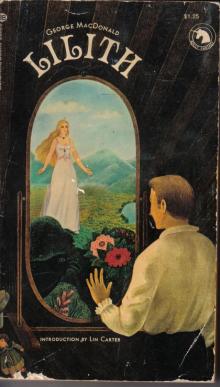 Lilith: A Romance
Lilith: A Romance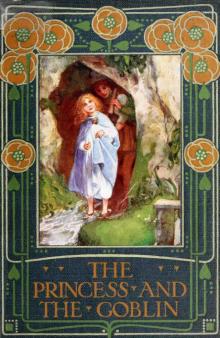 The Princess and the Goblin
The Princess and the Goblin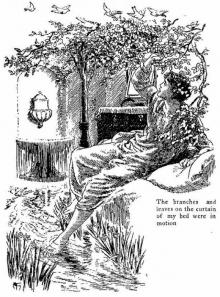 Phantastes: A Faerie Romance for Men and Women
Phantastes: A Faerie Romance for Men and Women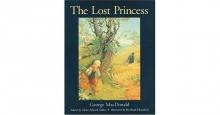 A Double Story
A Double Story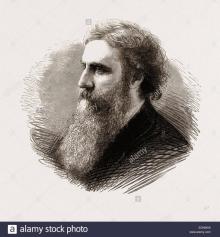 St. George and St. Michael
St. George and St. Michael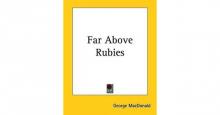 Far Above Rubies
Far Above Rubies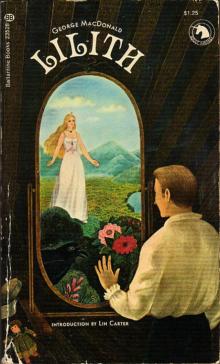 Lilith
Lilith